Given on the 8th Day of November B.E. 2542; Being the 54th Year of the Present Reign.
This Act is comprised of 11 chapters, 133 articles, and the legislative authority of the foundation of the National Counter Corruption Commission of Thailand. As in Section 6: There shall be the National Counter Corruption Commission called the “N.C.C. Commission.” in brief, consisting of the President and other eight qualified members appointed by the King with the advice of the Senate.
Section 1.
This Act shall be called the “Organic Act on Counter Corruption, B.E. 2542 (1999)”.
Section 2.
This Act shall come into force as from the day following the date of its publication in the Government Gazette.
Section 3.
There shall be repealed:
The Counter Corruption Act, B.E. 2518 (1975);
The Counter Corruption Act (No. 2), B.E. 2530 (1987);
The Act on the Declaration of Assets and Liabilities of Senators and Members of the House of Representatives, B.E. 2539 (1996);
Section 4.
In this Organic Act:
“State official” means a person holding a political position, Government official or local official assuming a position or having permanent salaries, official or person performing duties in a State enterprise or a State agency, local administrator and member of a local assembly who is not a person holding a political position, official under the law on local administration and shall include a member of a Board, Commission, Committee or of a sub-committee, employee of a Government agency, State enterprise or State agency and person or group of persons exercising or entrusted to exercise the State’s administrative power in the performance of a particular act under the law, whether established under the governmental bureaucratic channel or by a State enterprise or other State undertaking;
“Person holding a political position” means:
(1) Prime Minister;
(2) Minister;
(3) Member of the House of Representatives;
(4) Senator;
(5) Political official other than (1) and (2) under the law on political officials;
(6) Political parliamentary official under the law on parliamentary officials;
(7) Governor of Bangkok Metropolitan, Deputy Governor of Bangkok Metropolitan and member of the Bangkok Metropolitan Assembly;
(8) Executive member and member of a Nacho Municipality Council;
(9) local administrator or member of a local assembly of a local government organization the income or budget of which is not lower than that prescribed in the Government Gazette by the National Counter Corruption Commission;
“person holding a high-ranking position” means the person holding the position as head of a Government agency at the level of a Department, Sub-Ministry or Ministry in respect of ordinary Government officials, the person holding the position as Commander of a National Force or Commander-in-chief in respect of military officials, the person holding the position as Commander of the National Royal Thai Police Force, the person holding the position as Permanent-Secretary of the Bangkok Metropolitan Administration, member of the Board the top executive of a State enterprise or head of an independent agency under the Constitution which enjoys the status of a juristic person, or the person holding the position prescribed by other laws;
“injured person” means the person injured by the commission of the act giving rise to unusual healthiness of a State official, the commission of an offence of malfeasance in office under the Penal Code or the commission of an offence of malfeasance or corruption under other laws;
“alleged culprit” means the person who is alleged to have committed, or who is under the circumstance apparent to the National Counter Corruption Commission as indicating the commission of, an act which prima facie constitutes a basis for the removal from office, the criminal proceedings, the lodging of a request that assets devolve on the State or the initiation of a disciplinary action as provided in this Organic Act, and shall also include the principal, instigator or abider and abettor in the commission of the said act;
“President” means the President of the National Counter Corruption Commission;
“Member” means a member of the National Counter Corruption Commission;
“Member of a sub-committee” means a member of a sub-committee on national counter corruption appointed by the National Counter Corruption Commission to perform activities under this Organic Act;
“Secretary-General” means the Secretary-General of the National Counter Corruption Commission;
“competent official” means the Secretary-General and the Government official attached to the Office of the National Counter Corruption Commission, including the Government official or official assisting in the official service of the Office of the National Counter Corruption Commission, entrusted by the National Counter Corruption Commission to perform activities under this Organic Act;
“corruption” means the performance or omission of a particular act in office or in the course of official duty, or the performance or omission of a particular act under the circumstance likely to cause other persons to believe that the person so performing or omitting holds such office or has such duty although the office or duty is not held or assumed by such person, or the exercise of power in office or in the course official duty with a view to acquiring undue benefits for his or her own or for other persons;
“unusual increase of assets” means the phenomenon where the assets and liabilities listed in the account showing assets and liabilities submitted by the person holding a political position upon vacation of office differ from the account showing assets and liabilities submitted at the time of taking office, in the manner that the assets unusually increase or liabilities unusually decrease;
“unusual healthiness” means having an unusually large quantity of assets, having an unusual increase of assets, having an unusual decrease of liabilities or having illegitimate acquisition of assets in a consequence of the performance of duties or the exercise of power in office or in the course of duty.
Section 5. The President of the National Counter Corruption Commission shall have charge and control of the execution of this Organic Act and shall have the power to issue notifications or regulations and appoint competent officials with the approval of the National Counter Corruption Commission for the execution of this Organic Act.
The notification and regulation under paragraph one which is of general application shall enter into force upon their publication in the Government Gazette.
Chapter I National Counter Corruption Commission
Section 6.
There shall be the National Counter Corruption Commission called the “N.C.C. Commission.” in brief, consisting of the President and other eight qualified members appointed by the King with the advice of the Senate.
Section 7.
The selection and election of members shall be conducted as follows:
(1) the President of the Senate shall cause to be established the Selection Committee of fifteen members, consisting of the President of the Supreme Court of Justice, the President of the Constitutional Court, the President of the Supreme Administrative Court, Rectors of all State higher education institutions which are juristic persons, being elected among themselves to be seven in number, and representatives of all political parties having a member who is a member of the House of Representatives, provided that each party shall have one representative and all such representatives shall elect among themselves to be five in number; and the Selection Committee shall have the duties to select and prepare a list of names of eighteen qualified persons and submit it to the President of the Senate with the consent of the nominated persons within thirty days as from the date when a ground for the selection of persons to be in such office occurs. The resolution making such nomination must be passed by votes of not less than three-fourths of the total number of the existing members of the Selection Committee;
(2) The President of the Senate shall convoke a sitting of the Senate for the purpose of passing a resolution, by secret ballot, electing the nominated persons in the list under (1). For this purpose, the persons who receive the highest votes which are more than one-half of the total number of the existing senators shall be elected as members, but if the number of the persons who are elected and receive the highest votes which are more than one-half of the total number of the existing senators is less than nine, the name-list of the remaining nominees shall be submitted to the senators for voting on another occasion consecutively. In such case, the persons receiving the highest votes in respective order in the specified number shall be elected as members. If there are persons receiving equal votes in any order which result in having more than nine persons, the President of the Senate shall draw lots to determine who are elected persons.
The persons elected as members under (2) shall meet and elect one among them to be President and shall, then, notify the President of the Senate of result thereof.
The President of the Senate shall countersign the Royal Command appointing the President and members.
Section 8.
The persons nominated for election as members must be of apparent integrity, with qualifications under section 9 and without any of the prohibitions under section 10.
Section 9.
The persons nominated for election as members must be of the following qualifications:
(1) Being of Thai nationality by birth;
(2) Being of not less than forty five years of age;
(3) having, in the past, been a Minister, judge of the Constitutional Court, Election Commissioner, Ombudsman, member of the National Human Rights Commission, member of the State Audit Commission, or serving or having, in the past, served in the position not lower than Deputy Prosecutor-General, Director-General or its equivalent, or holding the position not lower than Professor.
Section 10.
The persons nominated for election as members must not be under any of the following prohibitions:
(1) Being a member of the House of Representatives, senator, and political official, member of a local assembly or local administrator;
(2) Being or having, in the past, been a member or a person holding other position of a political party over the period of three years before the date of the nomination;
(3) Being a judge of the Constitutional Court, Election Commissioner, and Ombudsman, member of the National Human Rights Commission, judge of an Administrative Court or member of the State Audit Commission;
(4) Being of unsound mind or of mental infirmity;
(5) Being a Buddhist priest, novice, monk or clergy;
(6) Being detained by a warrant of the Court or by a lawful order;
(7) Being under suspension of the right to vote;
(8) Being addicted to drugs;
(9) Being an undercharged bankrupt;
(10) Having been sentenced by a judgment to imprisonment and being detained by a warrant of the Court;
(11) having been discharged for a period of less than five years on the nomination day after being sentenced by a judgment to imprisonment for a term of two years or more except for an offence committed through negligence;
(12) having been expelled, dismissed or removed from the official service, a State agency or a State enterprise on the ground of corruption or deemed corruption;
(13) Having been ordered by a judgment or an order of the Court that his or her assets shall devolve upon the State on the ground of unusual healthiness or an unusual increase of assets;
(14) Being under the prohibition from holding a political position under section 34 and section 41;
(15) Having been removed from office by the resolution of the Senate, provided that, from the date of the resolution to the nomination day, the period of five years has not elapsed.
Section 11.
The person elected as member shall not:
(1) Be a Government official holding a permanent position or receiving salaries;
(2) Be an official or employee of a State agency, State enterprise or local administration, or be a member of the Board or counsel of a State enterprise or State agency;
(3) Hold any position in a partnership, a company or an organization carrying out businesses for sharing profits or incomes, or be an employee of any person;
(4) Engage in any other independent profession.
When the Senate has elected the person in (1), (2), (3) or (4) with the consent of that person, the elected person can commence the performance of duties only when he or she has resigned from the position in (1), (2), (3) or has adduced evidence to the satisfaction that his or her engagement in the independent profession in (4) has ceased to exist. This must be done within fifteen days as from the date of election. If that person has not resigned or ceased to engage in the independent profession within the specified time, it shall be deemed that that person has never been elected as member and the provisions of section 14 shall apply.
Section 12.
Members shall hold office for a term of nine years as from the date of their appointment by the King and shall serve for only one term.
Members who vacate office at the expiration of term shall remain in office to continue to perform their duties until the newly appointed members take office.
Section 13.
In addition to the vacation of office at the expiration of the term under section 12, members vacate office upon:
(1) Death;
(2) Having attained the age of seventy years;
(3) Resignation;
(4) Being disqualified under section 9 or being under any of the prohibitions under section 10;
(5) Violation of section 11;
(6) Being removed by a resolution of Senate under section 16;
(7) Being sentenced by a judgment to imprisonment.
When the circumstance under paragraph one occurs, the remaining members may continue to perform duties and it shall be deemed that the N.C.C. Commission consists of the existing members.
Section 14.
Upon vacation of office of a member, the proceeding under section 7 shall be commenced within thirty days as from the date of vacation.
In the case where a member vacates office under section 13, the provisions of section 7 shall apply mutatis mutandis. In this case, the Selection Committee shall prepare and submit to the President of the Senate a name-list of qualified persons in the number two times the number of the persons having vacated office.
In the case where a member vacates office while the National Assembly is not in session, the proceeding under section 7 shall be commenced within thirty days as from the date of the opening of the National Assembly’s session.
Section 15
Members shall submit an account showing particulars of their assets and liabilities, their spouses and children who have not yet become suit juries to the President of the National Assembly upon taking or vacating office, and the provisions of section 32, section 33, section 35 paragraph one and paragraph three, section 41 and section 119 shall apply mutatis mutandis.
Section 16
Members of the House of Representatives of not less than one-fourth of the total number of the existing members of the House have the right to lodge with the President of the Senate a complaint that any member has acted unjustly, intentionally violated the Constitution or laws or has been under any circumstance which is seriously detrimental to the dignity of the holding of office, in order to request the Senate to pass a resolution removing that member from office.
The resolution of the Senate removing the member from office under paragraph one shall be passed by votes of not less than three-fourths of the total number of the existing members of the Senate.
Section 17.
Members of the House of Representatives, senators or members of both Houses of not less than one-fourth of the total number of the existing members of both Houses have the right to lodge with the Supreme Court of Justice’s Criminal Division for Persons Holding Political Positions a request wherein it is alleged that any member has become unusually wealthy or has committed an offence of corruption or malfeasance in office.
The request under paragraph one shall clearly itemize the circumstance in which such person has allegedly committed the act under paragraph one and shall be submitted to the President of the Senate. Upon receipt of the said request, the President of the Senate shall refer it to the Supreme Court of Justice’s Criminal Division for Persons Holding Political Positions for trial and adjudication.
In the case where the Supreme Court of Justice’s Criminal Division for Persons Holding Political Positions gives an order admitting the request, the alleged member shall not perform his or her duty until the Supreme Court of Justice’s Criminal Division for Persons Holding Political Positions has passed a judgment dismissing the said request.
The proceedings in Court shall be in accordance with the organic law on criminal proceedings for persons holding political positions.
Section 18
Salaries, emoluments and other benefits of the President and members shall be in accordance with the laws on such particular matters.
Chapter II Powers and Duties of the National Counter Corruption Commission
Section 19.
The N.C.C. Commission shall have the following powers and duties:
(1) To inquire into facts, summaries the case and prepare the opinion to be submitted to the Senate under Chapter 5, Removal from Office;
(2) to inquire into facts, summaries the case and prepare the opinion to be referred to the Prosecutor-General for the purpose of prosecution before the Supreme Court of Justice’s Criminal Division for Persons Holding Political Positions under Chapter 6, Criminal Proceedings Against Persons Holding Political Positions under section 308 of the Constitution;
(3) To inquire and decide whether a State official has become unusually wealthy or has committed an offence of corruption, malfeasance in office or malfeasance in judicial office;
(4) to inspect the accuracy and actual existence of assets and liabilities of State officials and inspect change of assets and liabilities of the persons holding political positions under Chapter 3, Inspection of Assets and Liabilities;
(5) To prescribe rules with respect to the determination of positions and classes or levels of State officials obliged to submit an account showing particulars of assets and liabilities;
(6) to prescribe rules and procedures for the submission of the account showing particulars of assets and liabilities of State officials and the disclosure of accounts showing particulars of assets and liabilities of persons holding the position of Prime Minister and Minister;
(7) to submit an inspection report and a report on the performance of duties together with remarks to the Council of Ministers, the House of Representatives and the Senate annually and publish these reports for dissemination;
(8) to propose measures, opinions or recommendations to the Council of Ministers, National Assembly, Courts or State Audit Commission for the purpose of improving the performance of government service or formulating action plans or projects of Government agencies, State enterprises or other State agencies in an Endeavour to control corruption and the commission of an offence of malfeasance in office or malfeasance in judicial office;
(9) to refer matters to the agency concerned for the purpose of making a request to the Court for an order or judgment canceling or revoking a right or document of title in respect of which the State official has given approval or granted permission conferring the rights or benefits or issued the document of title to a particular person in contravention of the law or official regulations to the detriment of the Government service;
(10) to take action with a view to preventing corruption and building up attitudes and taste concerning integrity and honesty, and to take such action as to facilitate members of the public or groups of persons to have participation in counter corruption;
(11) To give approval to the appointment of the Secretary-General;
(12) To appoint persons or a group of persons for performing duties as entrusted;
(13) To carry out other acts provided by this Organic Act or other laws to be the responsibility of the N.C.C. Commission.
Section 20.
At a meeting of the N.C.C. Commission, the presence of not less than one-half of the total number of the members is required to constitute a quorum. But, a quorum for considering and making a determination of a particular matter or for giving approval to a particular matter shall be constituted by the presence of not less than two-thirds of the total number of the members.
Section 21
A meeting shall be in accordance with the regulations prescribed by the N.C.C. Commission.
The calling for a meeting shall be in writing and notified to every member not less than three days in advance unless such member has known of the calling for a meeting at the previous meeting. In such a case, the written notification of the calling for a meeting may be made only to the members not present at the meeting.
The provisions in paragraph two shall not apply in the case where there occurs a compelling necessary urgency. In such a case, the President may call for a meeting otherwise.
Section 22
The President has the power and duty to conduct a meeting and, in the interest of its orderly proceeding, shall have the power to give any order as is necessary.
If the President is not present at the meeting or is unable to perform the duty, the members present at the meeting shall elect one member among themselves to preside over the meeting.
Section 23
A resolution of a meeting shall be by a majority of votes, except that in the case of passing a resolution making a determination or giving an approval in accordance with the provisions of this Organic Act, the President and members shall cast votes for the purpose of the resolution and the resolution shall be passed by votes of not less than two-thirds of the total number of the existing member.
In casting votes, each member shall have one vote. In the case of an equality of votes, the person presiding over the meeting shall have an additional vote as a casting vote.
Section 24.
There shall be written minutes of each meeting.
If a dissenting opinion is presented, the dissenting opinion and reasons invoked shall be recorded in the minutes of the meeting. If minority members present their dissenting opinion in writing, it shall also be recorded in the minutes of the meeting.
Section 25.
In the performance of duties under this Organic Act, the N.C.C. Commission shall have the powers as follows:
(1) to give an order instructing a Government official, official or employee of a Government agency, State agency, State enterprise or local administration to perform all such acts as are necessary for the performance of duties of the N.C.C. Commission or to summon relevant documents or evidence from any person or to summon any person to give statements or testimonies, for the purpose of a fact inquiry;
(2) to file an application with the competent Court for an issuance of a warrant permitting an entry into a dwelling-place, place of business or any other place including a vehicle of any person from sunrise to sunset or during the working hours for the purposes of inspecting, searching, seizing or attaching documents, property or other evidence related to the matter under inquiry. If action is not completed within such time, such action may be further taken until its completion;
(3) to address a written request to a Government agency, State agency, State enterprise, local administration or private agency to carry out a particular act for the purpose of the performance of duties of, or the conduct of a fact inquiry or the making of a determination by, the N.C.C. Commission;
(4) To prescribe regulations with respect to the rules and procedures for the payment of per diem, traveling fees and remuneration of a witness and in connection with the performance of duties of competent officials or other matters, for the execution of this Organic Act;
(5) To prescribe the regulation with respect to the payment of a reward under section 30.
Section 26
In taking criminal proceedings against a State official under this Organic Act, the N.C.C. Commission shall have the powers as follows:
(1) to inquire into facts and gather evidence in order for the facts to be known or the offence to be proved and in order for the offender to be prosecuted and punished;
(2) to file an application with the competent Court for an issuance of a warrant of arrest and custody of the alleged culprit who, from the fact inquiry, appears to be an offender or against whom the N.C.C. Commission has passed a resolution that the allegation has a prima facie case, for the purpose of referring such person to the Prosecutor-General for further proceeding.
Section 27.
In the performance of duties under this Organic Act, the President, the member or the Secretary-General as entrusted by the President shall have the power to sign a written communication carried out in accordance with the powers and duties of the N.C.C. Commission.
Section 28.
In the case where the President has the duty to perform any act other than the conduct of a meeting and is temporarily unable to perform the duty, the members shall elect one member among themselves to act as the President.
Section 29.
In the case where any member, member of a sub-committee or competent official is directly or indirectly interested in any particular matter, that person shall not attend and participate in the fact inquiry, the consideration or the determination of such matter.
Section 30
In conducting a fact inquiry in the case of the allegation that a State official has become unusually wealthy or in the inspection of the change of assets and liabilities of a person holding a political position, if any person gives the N.C.C. Commission a trace or clue, information or facts in connection with assets or liabilities of the alleged culprit or the person under inquiry, including the principal, instigator or the aider and abettor and the giving of such trace or clue, information or facts results in the assets which constitute the unusual healthiness or the unusually increased assets devolving on the State by a final order of the Court, such person shall be entitled to the reward in accordance with the regulation prescribed by the N.C.C. Commission.
Section 31
In the performance of duties under this Organic Act, the President, a member, a member of a sub-committee and a competent official shall be an official under the Penal Code.



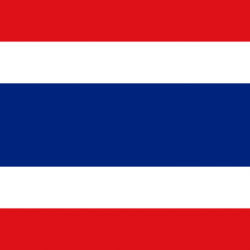
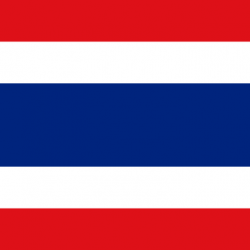
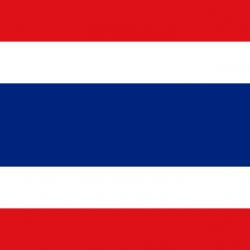
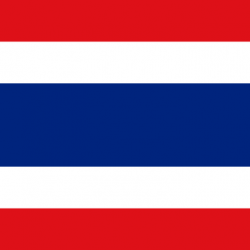

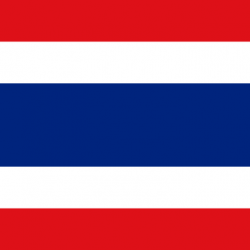
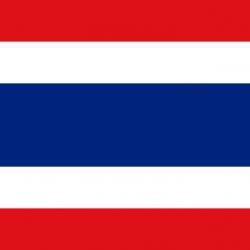
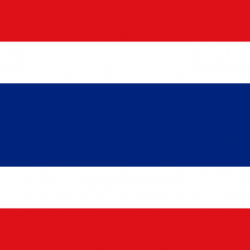
 We will not leak your personal information
We will not leak your personal information